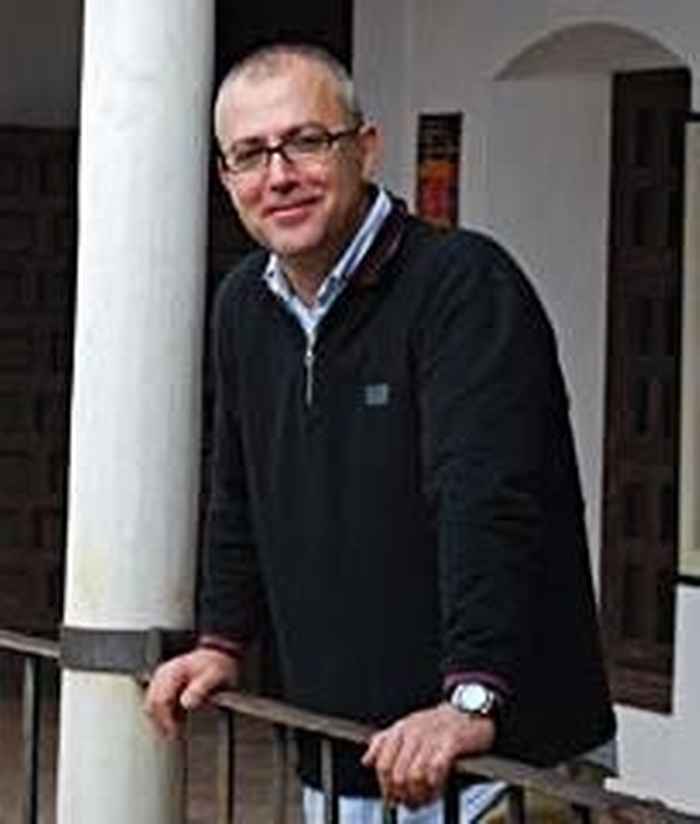Dr. Oscar Guasch

My name is Oscar Guasch. I have a degree in History and a PhD in Social Anthropology, and I'm a senior reader (tenured) at the Department of Sociology at the University of Barcelona in Spain. I was a visiting scholar at the ARG-GS between February and June 2015.
Years ago I researched the development of gay subcultures in Spain. I wrote the first ethnography about changes in gay leisure in Spain during the eighties ( La sociedad rosa; Barcelona, Editorial Anagrama, 1991). I paid attention to the relationship between gay political organizations and the gay entertainment industry. I have also investigated the social construction of gay identities. I'm interested in how gay identities are related to age, gender and homophobia. I'm still interested in the changes that technological development produces in gay leisure and how technologies change gay identities. Another aspect that I researched is the relationship between different gay generations. I am also investigating the process of transmission of gay subcultures between older gay men and younger gay men.
Another important topic of research in my academic career has been the social history of heterosexuality. I have published several texts that challenge medical and psychiatric definitions of heterosexuality, and I have proposed a sociological redefinition of heterosexuality ( La crisis de la heterosexuallidad; Barcelona, Editorial Laertes, 2000). I propose that heterosexuality was a social product of the industrial revolution and was a part of the social control strategies of the bourgeoisie during the nineteenth century. My point of view is that heterosexuality is an emotional lifestyle, based on the myth of romantic love that connects and binds marriage and passionate love. Subordinate groups have easier access to the institutions when institutions are in crisis, and of course this includes the institution of marriage. Therefore, this crisis allows gays and lesbians to access the very institution of marriage. Through “gay marriage”, lesbian and gay people can also gain access to an emotional heterosexual lifestyle. I provocatively argue that gay and lesbian couples who are seeking the myth of marriage through passionate love can be labeled as heterosexuals. In any case, heterosexuality, which has its roots in the industrial society, is changing in today's society.
I am interested in masculinities and feminist men. I have published several texts about the social construction of masculinities in Spain ( Héroes, científicos, heterosexuales, y gays. Los varones en perspectiva de género; Barcelona, Editorial Bellaterra, 2006). I am also interested in the political discourse of feminist men in Spain. The feminist men movement in Spain was born in the late eighties. Today, the feminist men movement, is organized to fight gender violence. The Spanish feminist men also seek alliances with the LGBT movement to fight homophobia. However, the feminist men movement still has little social relevance. In Spain, there are significant areas of feminism which are critical against feminist men. Institutional feminism is reluctant to accept feminism in men and does not consider hegemonic masculinity as a form of gender violence against men. Similarly, the long established organizations of the Spanish gay movement think that homophobia is an issue that only affects homosexuals. In Spain, strategies and political discourses of feminist men are seeking to create broad alliances against sexism and homophobia. Unfortunately, they are not very successful.
Right now I'm researching the development and evolution of sex work among men in Spain. I am analyzing the historical context of sex work among men. I propose three models of sex work among men: outdoor model (1950-1975), indoor model (1975-2000), and online model (2000-today). They are models that occur over time. They are overlapping models. Each model has had its historical moment of hegemony. I want to know how the social and economic context has been influential. In the second phase of the research I analyze the relationship between gay sexual identities and sex work among men.
During my career, I have been closely involved with Latin America. I have been a visiting scholar at the University of Morelos (Cuernavaca, Mexico) and also in the Central University of Venezuela (Caracas). I am a member of the Network of Latin American Studies on Sexual Diversity. One of the goals of my stay at the ARG-GS was to expand my academic social network in Europe, and the experience has been very positive. The ARG-GS is dynamic and open to internationalization. It was very interesting to attend lectures given by scholars from different countries. The diversity of the topics presented and the high quality of the intellectual debates was very challenging and revealing. I appreciated the effectiveness of the organization regarding in my academic needs. As soon as I arrived I got the ID to access all the resources of the University of Amsterdam (UvA). As a visiting professor, I got a shared office where I could socialize with many international researchers. I had access to all the library collections of the UvA, including rare books, articles and other media.
As I wrote before, I'm working on the relationship between masculinity and sex work among men. My stay in Amsterdam allowed me to talk to specialists in sex work. I came to know the Dutch system of legal management of sex work and the different approaches of the Dutch and Spanish on this issue. There were many people in the center who were interested in my research. The collaboration with its members has been excellent, and the personal touch was loving, kind and warm. Indeed, the combination of academic and emotional excellence was fantastic. It was a pleasure to be a visiting scholar, and I am deeply grateful for such wonderful weeks. I hope that both universities, those of Amsterdam and Barcelona, can work more closely on the issue of sexual diversity in the future.